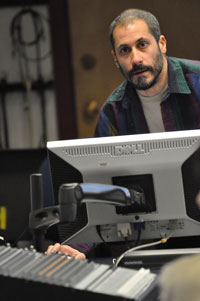"Music synthesis is the creation and manipulation of digital sounds, be it working with digital audio on the computer or with synthesizers, both physical hardware or software-based. It's the creation of organic and non-organic instrument sounds, through the use of computers and electronics. It's also about composing music using these tools and instruments."
"I look at the synthesizer as its own instrument; I don't necessarily try to make it sound like some other instrument. It's capable of creating the sounds of all existing instruments, but it's also capable of creating the sounds of instruments that don't exist. I think that it opens up a sonic palette that no other instrument can offer."
"You can look at the synthesizer as a keyboard instrument—a physical, playable instrument. It's an instrument unto itself. But it allows players and composers an outlet for sounds and layering that potentially you can't get anywhere else. For me, studying music synthesis at Berklee allowed me to realize music is around us almost all the time. Sounds, rhythms, patterns surround us more often than we realize."
"I want my students to work hard, practice, and ask questions. Don't be afraid to ask questions, and not just in the classroom. Be inquisitive. Open your eyes, open your minds to things you don't necessarily know even exist. I think that's an important part of learning and growing. The more they're willing to ask, the more they're going to get out of it."
"My teaching style is somewhat intense, but fun. I want my students to have fun while we're in the classroom. I want to have fun while I'm in the classroom. If I'm not enjoying what I'm doing, they're probably not going to enjoy it either. Ultimately speaking, I would say, my style is thought-provoking, informative, and fun."

